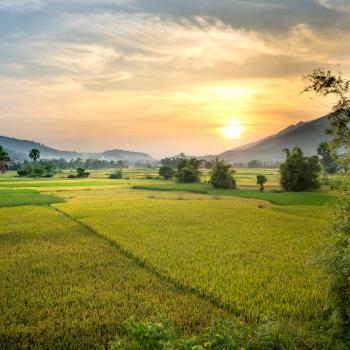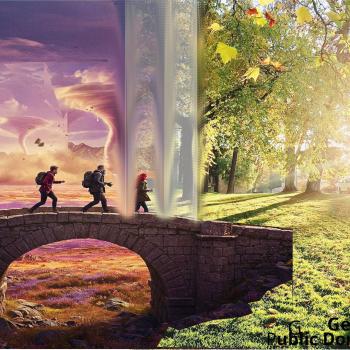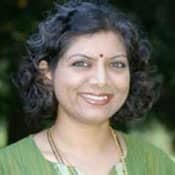My neighbor's daughter always knows when Diwali is: it's when my Christmas lights go up. Diwali is also known by other names, such as Deepavali, or in English, the Festival of Lights. It is a holy day for Hindus, Jains and Sikhs, with a different religious significance for each faith tradition. For ethnic Hindus, the various stories associated with it depend largely on their respective regional and cultural customs. It is celebrated across the land where it originated by almost everyone—similar to how Christmas is celebrated here in America.
Deepavali means a row of lights. Traditionally, deepa or diya, small clay lamps filled with oil, were lined up in rows in front of one's home. Informational articles abound, such as this one from Hinduism Today. Many do not cover the myriad of stories and traditions surrounding Diwali—or only focus on one way of celebrating it, such as the understanding that the Hindu New Year is celebrated the day after Diwali, which is true only for a segment of the Hindu population. A popular story centers around the story of Rama, the avatar of Vishnu and successful hero of the epic the Ramayana, who is said to have returned from exile on this no-moon night. The light of the lamps illuminated the way for the virtuous hero to return home after he vanquished Ravana, the evil king who abducted Rama's equally virtuous wife Sita. Rama is the Prince of Ayodhya and is perceived as the embodiment of all that is dharmic. Lighting the lamps is a metaphor for the victory of all that is good and just over all that is evil and unjust. Light is also knowledge, shining so that there is no room for the darkness of ignorance.
As Hindu Americans, we have seen our country and our communities come a long way to shining the light of knowledge on what people know about Hindu beliefs and traditions. Whether it is my neighbors who are aware of when my family celebrates Diwali, or a congressman who is now aware that Hindus are not Shia or Sunni, Hindu Americans have begun to impact what people know about Hindus and how people respond to this awareness, both locally and nationally.
Changes may often seem simple. For instance, a school where a majority of the families are Indian immigrants reschedules the parent-teacher conferences originally planned for the evening of Diwali so that more parents can attend—which reminds me of another nearby community which held onto its Islamic faith and the American Dream as the football team adjusted practice times during Ramadan. But some are bigger and in the national arena, acknowledging that we as a country are aware of the holiday of the Hindus, Jains and Sikhs who are also part of the diverse religious landscape that is part of a country that prides itself on religious freedom.
A resolution recognizing the religious and historical significance of the festival of Diwali was introduced by the 112th Congress this month in Washington, D.C. Senators came together across party lines and across the country, and the advocacy efforts of the Hindu American Foundation on behalf of the Hindu American community helped pave the way for awareness and understanding, of the festival celebrated here and around the world during the late fall. The two co-chairs of the Senate India Caucus, John Cornyn (R-TX) and Mark Warner (D-VA), cosponsored the legislation along with Senators Sherrod Brown (D-OH), Frank Lautenberg (D-NJ), and Joe Lieberman (I-CT). While HAF has sent delegations to DC to advocate on other issues, this is one where we can celebrate, as it represents years of successful advocacy—I believe that a Diwali resolution was first introduced in 2004, and I know that the first time such a resolution passed was in 2007.
Poet Shel Silverstein wrote, "Red, black or orange / Yellow or white / We all look the same / When we turn off the light." But it's even better when we turn on the lights and realize that we make up one nation—and one world—and honor and respect all religious observances. The responsibility that goes with freedom of religion, the hospitality that goes with welcoming immigrants from all backgrounds to our shores, and the acculturation that goes with appreciating our diversity, means that those strings of lights could be for Diwali, Christmas or both!
10/20/2011 4:00:00 AM





